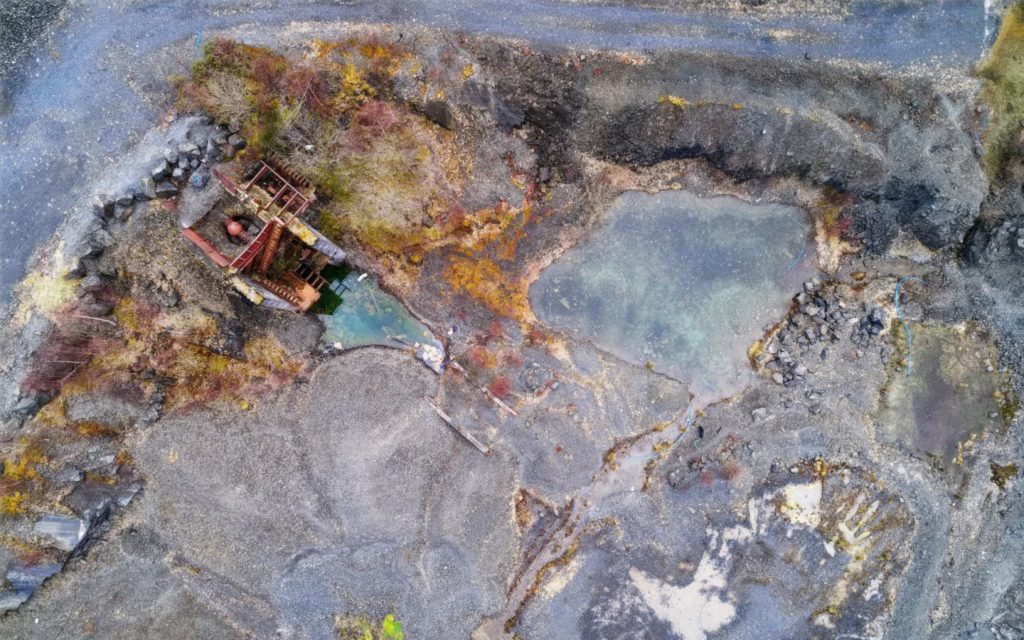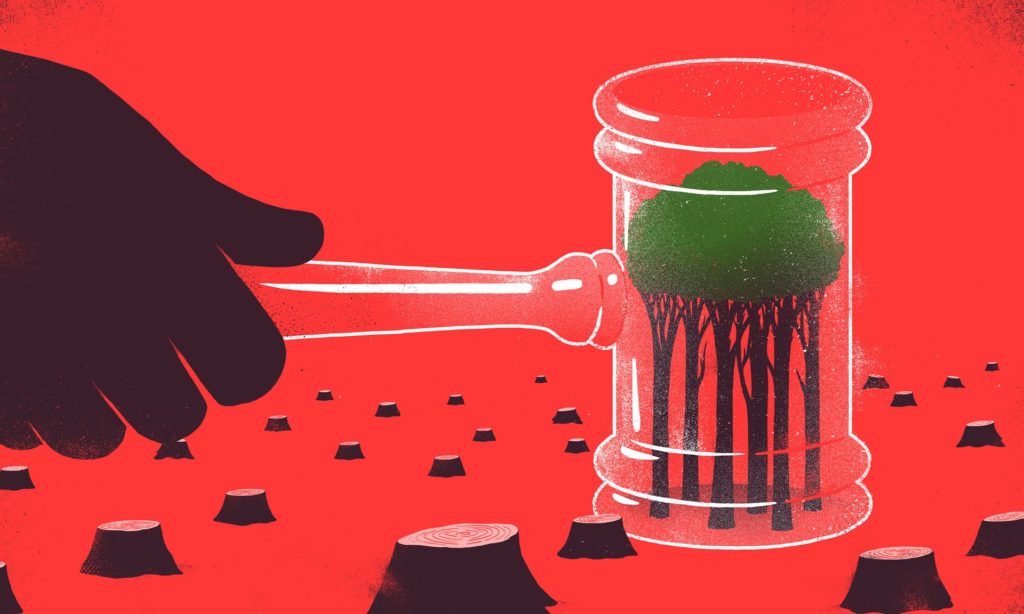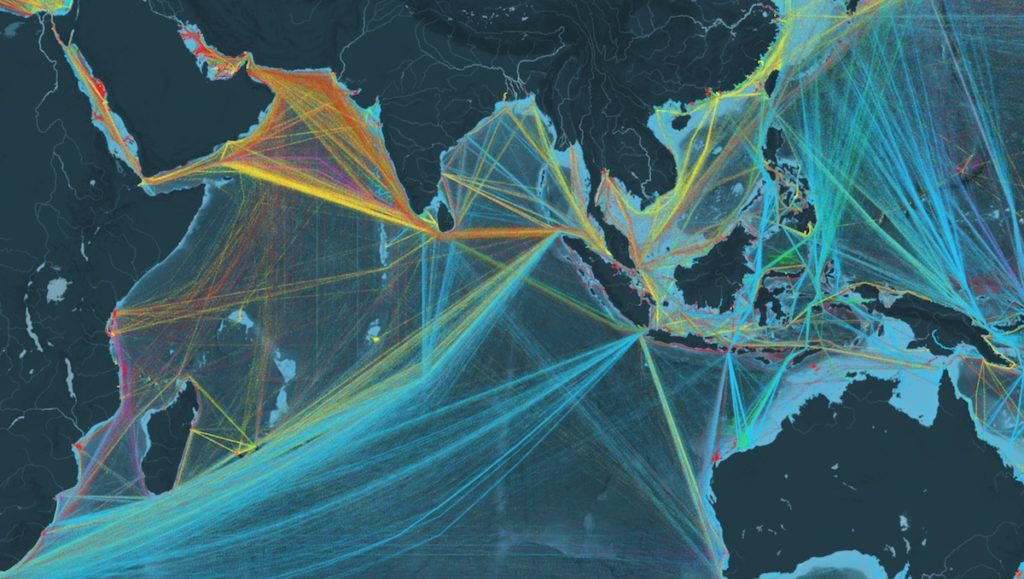Once a month, we put together a list of stories we’ve been reading: things you might’ve missed or crucial conversations going on around the web. We focus on environmental and social justice, cities, science fiction, current events, and political theory.
We’ll try to include articles that have been published recently but will last, that are relatively light and inspiring, and are from corners of the web that don’t always get the light of day. This will also be a space to keep you up to date with news about what’s happening at Uneven Earth.
This month, we’re highlighting articles on radical municipal politics—cities that are at the forefront of social change—and food justice. The question of whether nature should have rights was discussed both on our site and the wider web.
Uneven Earth updates
The post-Columbian exchange | Link | How content creators continue to misuse Indigenous culture, and how they can do better
Blueprint for an Earth jurisprudence economy | Link | A speech presented at the UN General Assembly
Endless life | Link| A post from a future
Odetta, Odessa | Link | “The sisters slow their rocking and let the man walk back to his car. They know what has to be done to keep him away.”
Creation | Link | “Their only constraints now were the limitations of imagination”
News you might’ve missed
According to a study at Harvard, Hurricane Maria killed nearly 5,000 Puerto Ricans
U.S. moves forward with geo-engineering experiments, defying global moratorium
Costa Rica will ban fossil fuels and become world’s first decarbonised society
Cities are suing oil companies for climate change
The UK government wants to put a price on nature – but that will destroy it. Natural Capital thinking leads us astray.
War criminal Erdoğan gears up for a power-grab. Europe rolls out the welcome mat for the Turkish leader, while Kurds are ethnically cleansed.
The making of a Kurdish Mandela. By keeping a key challenger in jail, Turkey’s government risks making Selahattin Demirtas an even more popular and formidable opponent.
How fracking’s appetite for sand is devouring rural communities. Small towns in western Wisconsin are being divided by a little-known mining boom.
What it’s like surviving in Nigeria’s city of soot. Port Hartcourt residents are protesting against the unregulated oil refineries that have polluted their entire city.
Urban nomads: Mongolian herders battle a new future as they leave the land for the city. As climate-driven drought takes hold, Mongolia’s nomads are retreating to the city – and facing choking pollution.
Growing movement builds unity to defend Indigenous Brazil
How Lula’s imprisonment is uniting workers in Brazil
Why the Herero of Namibia are suing Germany for reparations
New politics
In this Truthout series, Visions of 2018, activists address the questions: What would you like to see created, built or begun this year? What should we work to bring into being? Each of the pieces in this series focus on an idea for transformation, to give us fuel on the journey of 2018.
To be or not to be the change. The first of a series of posts on Chris Smaje’s blog Small Farm Future on the hows and whys of social transformation towards more sustainable societies, particularly in relation to the discussion about individualism and collectivism.
We need a new politics of ecology, write Matt Hern and Am Johal – one which transforms our relationships to each other, to other species, to the land, and to the future.
The emergence of an ecological Karl Marx: 1818 – 2018. “No longer can Marx be read as a cheerleader for economic growth or material progress.”
The global south is rich in sustainability lessons that students deserve to hear
Systems thinking. Fritjof Capra explains why ecoliteracy and systems thinking are crucial in building resilient and sustainable human communities that work with the patterns, structures and limitations of the natural environment: ‘The way to sustain life is to build and nurture community’. Richard Heinberg on Systems thinking, critical thinking, and personal resilience.
Solidarity economy: Building an economy for people and planet. “To survive, we need a fundamental transformation from an economy that is premised on homo economicus—calculating, selfish, competitive, and acquisitive—to a system that is also premised on solidarity, cooperation, mutualism, altruism, generosity, and love.”
The tiny country of Fiji has a big plan to fight climate change
Indigenous women built these tiny houses to block a pipeline—and reclaim nomadic traditions. The houses are affordable and energy-efficient, and are bringing back elements of the Secwepemc’s hunter-gatherer culture.
Local environmentalists fighting pipelines and perceptions in the heart of oil country
Trashopolis! Storytelling, waste research and glocal conflicts
518 Years Later: Rio’s Indigenous peoples launch state council for Indigenous rights
Radical municipalism
Check out this series on Rebel Cities:
Rojava shows pathway to common humanity.
In Warsaw, “Rights to the city” means clean air and affordable homes.
Zapatistas are blazing a world beyond neoliberalism.
Bologna resists Italian fascism through participatory politics.
Jackson rising. In June 2017, the young black attorney Chokwe Antar Lumumba was elected mayor of Jackson, Mississippi, with 93 per cent of the vote. He pledged to make the capital of this former slave state ‘the most radical city on the planet’. Kali Akuno describes the grassroots mobilisation that launched him to office.
These community groups are transforming Rio de Janeiro into a Sharing City
Seattle just showed how to rein in Amazon—and the company is going to war
Meet the rising new housing movement that wants to create homes for all
Gentrifying the Los Angeles river. Once marginalized by the city’s elite, LA’s riverside neighborhoods are now facing revitalization — and displacement.
If you’re in the New York City area, head on over to the Fearless Cities summit this July 27-29.
Lessons from the First Palestinian Intifada: Recent Gaza demonstrations fall into a long tradition of mass unarmed protest and direct democracy.
Why high-density living isn’t the answer to urban sprawl
Community land trust model taking off in Vancouver. 1,039 housing units will house over 2,000 people via a mix of affordable rental buildings and two new self-sustaining housing cooperatives financed by Canadian non-profit Community Land Trust. It is the largest investment into non-market-rate housing of any city in Canada.
Diomcoop Cooperative was formed by Barcelona’s street vendors, mostly African migrants, to break free from the informal economy through training and support in applying for their papers. Read how they organized.
Food justice
Food apartheid: the root of the problem with America’s groceries
How the chicken nugget became the true symbol of our era
A bag of cheap groceries is no substitute for political power. We can’t ignore the economic system, policies, and incentives that encourage 40 percent of all food to go to waste.
Grass-fed beef — The most vegan item in the supermarket
But then again, Avoiding meat and dairy is ‘single biggest way’ to reduce your impact on Earth
Decolonising food: Recentering traditional foods in the fight for climate justice. “Subsistence hunting does not decimate species like industrial-scale hunting and fishing. For thousands of years Indigenous Peoples have had a relationship with eating traditional game and fish that includes a spiritual kinship, a connection to the territory, and a responsibility to protect the ecosystems in which the species live.”
Two giants of the local economy movement, Helena Norberg-Hodge and Wendell Berry, discuss human nature, technology, experiential knowledge, agriculture policy, happiness, wildness, and local food systems in this episode of the Local Bites Podcast.
Where we’re at: analysis
Why you can’t have free trade and save the planet. “The economy is not insulated from nature, just as engineering is not insulated from world society. Global challenges of sustainability, justice and resilience all demand much more integrated thinking.”
Margaret Atwood: women will bear brunt of dystopian climate future
How the rich fuel climate change
Our laws make slaves of nature. It’s not just humans who need rights.
End the “green” delusions: Industrial-scale renewable energy is fossil fuel+. Industrial-scale renewable energy does nothing to remake exploitative relationships with the earth, and instead represents the renewal and expansion of the present capitalist order.
Indigenous communities are reworking urban planning, but planners need to accept their history
Rethinking the city through the commons
What is “the Local”? Exploring grassroots justice systems as a means of understanding the local
Inside the controversial world of slum tourism
Why we need to rethink climate change, with Timothy Morton. An audio conversation.
A friendly critique of George Monbiot’s Out of the Wreckage. “The sustainability problem cannot be solved unless we abandon affluence and growth. Just getting rid of neoliberal doctrine and exploitation is far from sufficient. Even a perfect socialism ensuring equity for all would bring on just about the same range of global problems as that we face now if the goal was affluence for all.”
David Graeber’s long-awaited book on bullshit jobs, jobs that don’t seem to add anything to society other than keeping us all working, is finally here. Here’s a selection of reviews, interviews and articles exploring the topic:
Bullshit jobs: why they exist and why you might have one
‘I had to guard an empty room’: the rise of the pointless job
The more valuable your work is to society, the less you’ll be paid for it
Is your job bullshit? David Graeber on capitalism’s endless busywork
Are you in a BS job? In academe, you’re hardly alone
Why are so many white-collar professionals in revolt?
And the original 2013 essay that started it all.
Barbara Ehrenreich just published a book critiquing the North American culture of wellness, self-improvement, overtesting and overdiagnosis. Read about it here: Why I’m giving up on preventive care and Mind control: Barbara Ehrenreich’s radical critique of wellness culture.
How neoliberalism colonised feminism, and what you can do about it
Just think about it…
Capitalism is collectivist. “Get past the well-crafted agitprop, and we see that corporate capitalism is all about subsuming the particular will of an individual to that of the institution.”
Is cyclical time the cure to technology’s ills? “We should recognize that the vast majority of people on Earth today believe time is linear, with one direction leading from past to present to future. But that’s a recent cultural construct.”
A new study finds climate change skeptics are more likely to behave in eco-friendly ways than those who are highly concerned about the issue.
Do you know where your healing crystals come from? These spiritual stones purportedly help people connect with the Earth, but few sellers will say where on Earth their products are from.
I watched an entire Flat Earth Convention for my research – here’s what I learnt. On science, trust, and declining faith in expert knowledge.
The real reason we’re searching for another Earth. These planets present us with the idea that although an Edenic and unspoiled life isn’t possible on Earth anymore, it could perhaps exist somewhere else—a somewhere else for which we’re homesick.
The Dreamtime, science and narratives of Indigenous Australia
The danger of leadership cults
Almost everything you know about e-waste is wrong
We’re here. You just don’t see us. There’s a common misconception that black people don’t love wild places. Latria Graham, a southerner with deep connections to farms, rivers, and forests, says the problem isn’t desire but access—and a long history of laws and customs that have whitewashed our finest public lands.
Coming to terms with a life without water. For some residents of Cape Town, the memory of the drought is already fading. But, in an increasingly parched world, will the anxiety ever really end?
Technology and society
How Facebook binds—and shatters—communities. “This relatively recent interest in… privacy was a result of industrialization, rapidly growing cities, and the fraying of a local social fabric that once enmeshed (to not say ensnared) everyone within a set of expectations and possibilities.”
New technologies won’t reduce scarcity, but here’s something that might. “As the global community becomes more aware of how their abundance is dependent on other human beings and the stability of environments, more and more will see commons-based businesses as the way of the future.”
Also by Vasilis Kostakis: Utopia now. “In 1890 William Morris imagined a world free from wage slavery. Thanks to technology, his vision is finally within reach.
Sci-fi, literature, and culture
James Bradley recommends the best Climate Change Fiction
Ten years in the making, a documentary about Ursula K. Le Guin drops its first trailer.
The new primitives. “There are myriad peoples across the globe struggling and fighting to maintain forms of social organization that have neither been co-opted into regular capitalist activity nor exist in some always imperiled state “beyond” civilization. These struggles do not need random voluntary acts of “rewilding” or fly-over videos of pristine nature. They need material support and political solidarity.”
Resources
Diversifying the economic toolkit. A free introduction to pluralist economics which looks at Post-Keynesian, Marxist, Austrian, Institutional, Feminist, Behavioral, Complexity, Cooperative and Ecological economics.
Shipmap. An interactive visualization of global shipping.
A list of publications devoted in large part to eco-literature: essays, articles, short stories, and poetry.
Want to receive this as a newsletter? Subscribe here.









